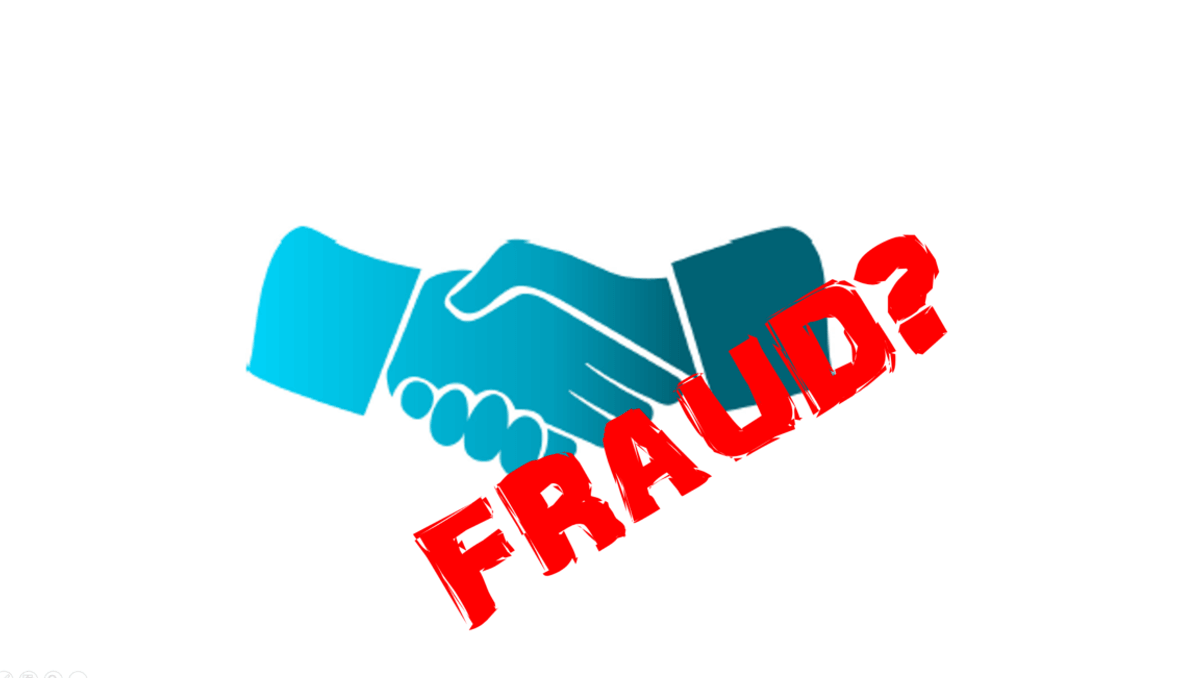Which frauds are advertisers using online marketing exposed to?

source: own elaboration
Fraud is a scam. Deliberate misleading, hiding or concealing certain important information. It is always associated with the detriment of the deceived person. Fraud has its own interpersonal dimension (when it is immoral, but it does not qualify as a legal offense), but it can also be treated as a crime (including civil offense) when an entity that has committed fraud is accused and convicted of it. However, proving the fraud is difficult - it requires presenting convincing evidence confirming the purposeful action of the perpetrator.
Although fraud is an inseparable part of the History, some time ago advertisers, especially those using television, radio and the press - could feel relatively safe. Mass media and their audience made every fraud easily detectable, and because you were paying for emissions, not their effects, we did not listen about scams too often. The situation has changed drastically with the spread of the Internet and online advertising. The new era in which marketing has entered is also the blossoming of frauds. They have become more sophisticated, making them even more difficult to detect. And especially problematic is that the advertiser is exposed to them from all sides.
Customers
It is often said that keeping customer is several times cheaper than getting a new one - but this is not the only advantage of good service quality. A dissatisfied customer has the right to tell about his unpleasant experiences in social media, on forums and on sites with opinions. And according to the statistics, he will do it 7 times more willingly if his approach is negative, unless a prize awaits him. However, we can not name it fraud as long as the real event is described. But what if the customer does not want to limit himself to review the transaction. Contrary to appearances, to make a scam you do not need to be a webmaster - activities such as Click Fraud is about wasting marketing budget on the clicks that will not end up with sell. Clicking on advertising links can be done in the google search engine itself. Although Google is constantly modifying its protections against this type of activity (such as picking up klicks from the same device, etc.), click frauds are still common and although they do not require specific knowledge or commitment from the fraudster, the costs for a victim may be very high - especially in case of high-rate keywords.
Competition
The Internet gives our competitors a field to show off in case of frauds. The ability to add comments and opinions, rating in rankings and comparisons tempts, and even a false unflattering opinion leaves a disgust. Such activities however don’t cause advertisers direct losses (although indirectly they can be huge). The best-known frauds in online advertising relate to performance ads - such as CPC (Cost Per Click), consisting on billing for any click generated. Already mentioned click frauds may be a manifestation of unfair activity of our competition, wishing to increase our costs in these and other online marketing solutions. In addition to "click frauds" they may also be fraudulent leads, and so forms incorrectly filled with false data, and in extreme cases, even fictitious sales made to force the advertiser to pay unjust commission and loss of time to service the order.
Partners
Unfair actiovities of competition are unpleasant, but quite obvious and somewhat expected. But what if the cheating entity is our business partner? In the case discussed above, behavior, such as click fraud, was intended to exhaust the marketing budgets of advertisers, but in the case of companies with whom we work, their goal is simply to extort money from us. And they can do it in several ways. Owners of websites, comparisons, blogs, advertising agencies, and even affiliate networks whose services we use - each of these entities may turn out to be a crook. Is it thanks to activities such as " Click Fraud”, entering false data in forms, automatically filling in applications without the knowledge of the person concerned, and even setting up accounts and credits only to close them after the payment of remuneration is done. And these are just some examples. Sometimes, special websites are created, generating additional clicks, and in extreme cases, people are hired for this. In the case of more technologically advanced scams, special algorithms are written, bots created, or cookies used. Any such action taken by a fraudulent publisher or affiliate (if he is aware of this type of abuse), is nothing but a theft committed with full premeditation. There are two advantages to the fraudulent party - the remuneration increases, but also artificially inflates statistics, which means that unfair action can even paradoxically improve the reputation of a given entity.
The huge range of frauds
None of these scams should be underestimated. Collectively they generate huge costs for advertisers - "click frauds” itself estimated at one billion dollars annually, and according to research in 2017, one out of five clicks was fraudulent. In Poland, in 2018, the loan industry suffered from cookie stuffing frauds, more of which can be found here - https://trafficwatchdog.pl/en/articles/9/cookie-stuffing-stuffing-cookies-what-it-is. Frauds are a part of the online marketing reality and its presence will only keep growing, so if you promote your business online, make sure you protect yourself from fraud.

